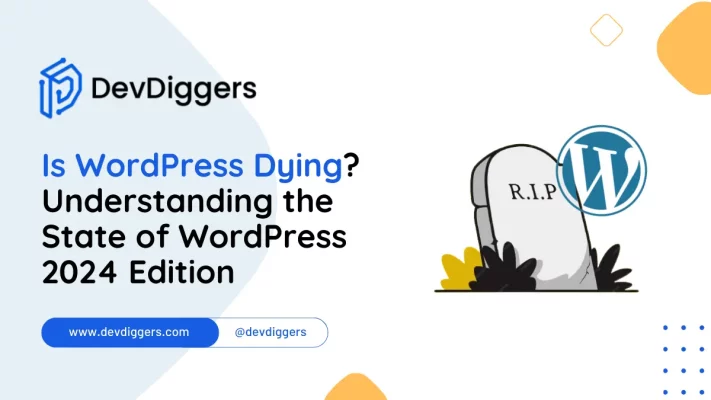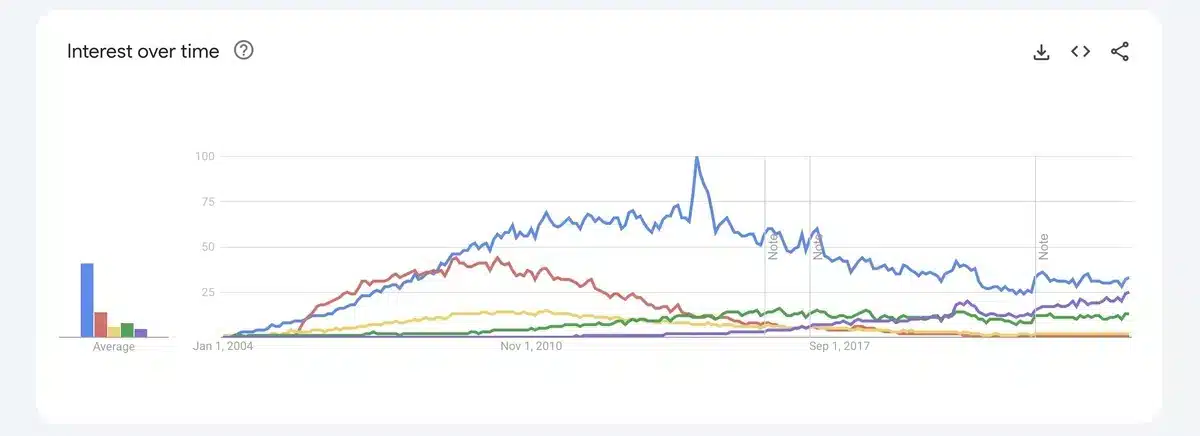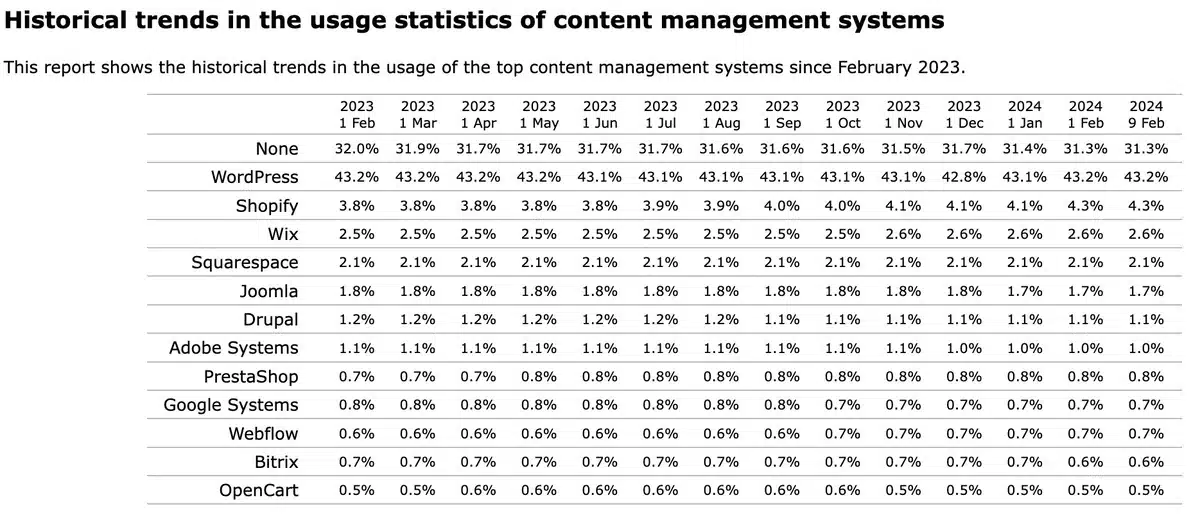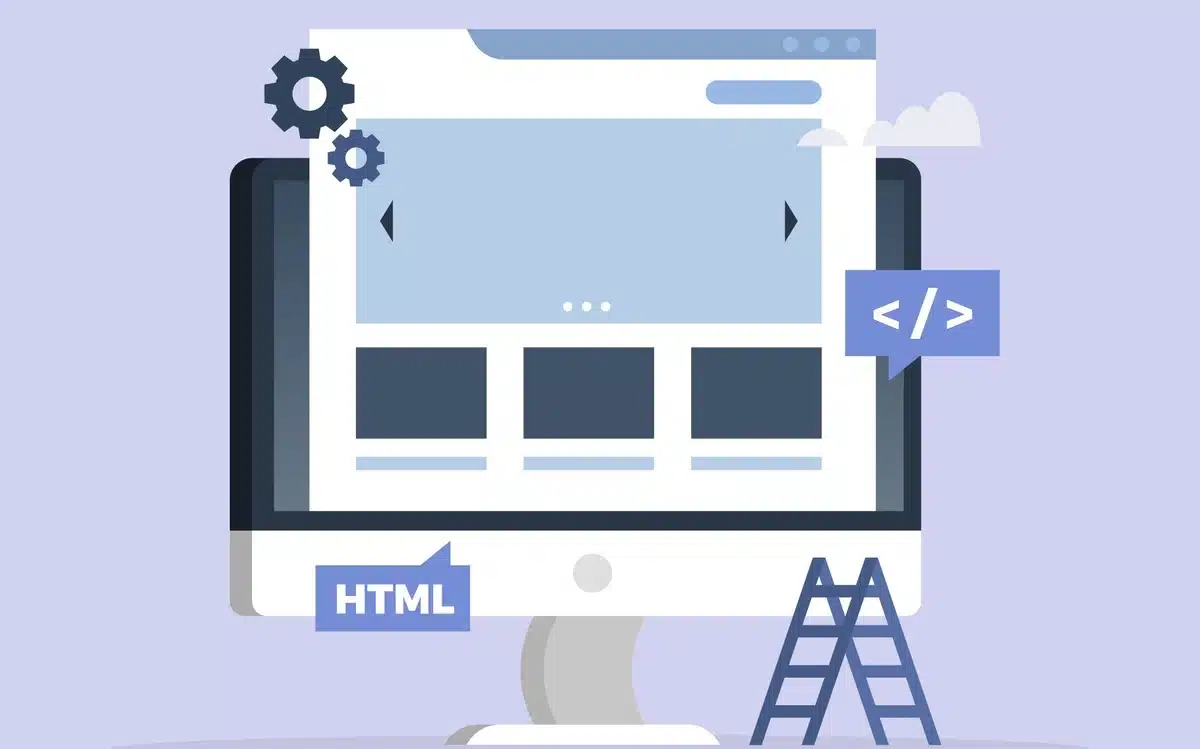Is WordPress Dying? Understanding the State of WordPress 2025 Edition

A big question in website creation is: Is WordPress dying? Once seen as the go-to choice, WordPress now faces tough competition from newer, easier-to-use platforms.
As people want their websites to be straightforward, fast, and secure, they’re starting to wonder about the future of WordPress.
This blog will look at what’s causing these discussions and what might be next for WordPress in a constantly changing world.
What is WordPress?

WordPress is like a toolbox for making websites. It’s a system that helps people create and control their websites without being computer wizards.
With WordPress, you can easily choose different designs, add extra features, and manage your content like text, pictures, and videos without confusion.
Many people use WordPress because it’s flexible and easy to use, and many others help improve it.
Whether you’re a blogger, a small business, or a big company, WordPress can help you build a great-looking website without all the technical headaches.
Is WordPress Dying?
No, WordPress isn’t dying. In 2023, WordPress was used by 45.8% of all websites on the internet, up from 43.3% in 2022.
WordPress is the platform of choice for 64% of all CMS-powered websites, including well-known names such as NASA, Rolling Stone, and The White House.
Aside from that, WordPress has recently released its latest major version, WordPress 6.4 Shirley.
WordPress is a content management system (CMS) and is identified as the better CMS for its open-source nature, ease of use, broad plugin support, and scalability.
It is also inexpensive, adaptable, and simple, making it an excellent choice for website builders who do not want to spend valuable time building their websites.
Reasons Why People Think WordPress is Dying
The idea that “Is WordPress dying?” comes from a few reasons:
1. More competition

The idea that “Is WordPress dying?” often comes from more competition from other website-building platforms. These platforms, like Shopify, Wix, and Squarespace, are getting popular because they’re easier to use.
They have simple tools to build websites, ready-made designs, and everything you need to host your site, all in one place.
WordPress, on the other hand, is known for being powerful but can seem complicated, especially for beginners.
It relies on themes, plugins, and updates that you might need to do manually, which can be tricky for some people.
Also, these other platforms are doing a lot of advertising, making them seem the better choice for people who want something quick and easy. However, WordPress still has a lot of users who like its flexibility and community support.
Even though these other platforms are gaining ground, WordPress is still adapting to stay relevant. So, while the competition is tough, WordPress isn’t going away anytime soon.
2. WordPress in Google Trends
Another reason many assume WordPress is failing is Google Trends data.
Looking at the past Google trends from 2004, we can see that WordPress searches gradually increased in 2014, and you may have observed a fall in interest since 2015.

This could be considered a decrease in popularity or relevance compared to other platforms.
The lack of increase in searches for WordPress-related topics may cause people to conclude that its popularity is fading and come up with the perception “Is WordPress Dying?“
However, it is critical to evaluate various factors that may influence these trends, including changes in user behavior, new technologies, and alterations in marketing methods.
Despite these concerns, WordPress still has a big fanbase and is used by many people. Its ability to change and be customized means it’s still a good choice for many websites.
3. Security Concerns

One primary reason people believe WordPress is dying revolves around security concerns. WordPress has faced criticism due to its security vulnerabilities, making users question its reliability.
Specifically, WordPress websites are frequent targets for Distributed Denial of Service (DDoS) attacks and brute force attacks.
These security threats highlight the importance of effective security precautions, such as using secure passwords, regularly upgrading WordPress core, themes, and plugins or services, and using security plugins or services to lower risks.
However, the rising number of such attacks can make some users think WordPress is less secure than other platforms, contributing to concerns about its longevity and viability.
4. WordPress Market Shares
One of the reasons people believe WordPress is dying is its declining market share compared to other website-building platforms. Here’s a recent overview of WordPress statistics and market share data.
Based on these statistics, we can see that WordPress’s market share in 2023 is 0.2% lower than its peak in the spring of 2022:

While WordPress has long been a dominant force in website creation, its market share has been challenged by competitors like Wix, Squarespace, and Shopify.
These newer platforms offer simplified interfaces and drag-and-drop functionality, appealing to users who prioritize ease of use over WordPress’s flexibility.
5. Performance Issues

Some people think WordPress is losing popularity because it can be slow. When websites get too complicated with many add-ons and fancy designs, they can take a long time to load and cause timeouts.
This frustrates visitors and can hurt the site’s appearance in search engines. Fixing these issues requires technical skills, which can be challenging for newcomers.
Other website platforms promise faster speeds without needing as much technical know-how. So, some people might choose those options over WordPress because they seem easier and faster.
6. Perception of Outdated Design

Apart from concerns regarding security, performance, and user-friendliness, there’s also a growing perception that WordPress is losing ground due to its outdated design aesthetics.
Despite its extensive collection of themes and plugins for customization, some users believe that WordPress websites frequently have a unique appearance that is outdated or outdated with current design trends.
The situation worsens with the rise of visually beautiful and user-friendly website builders and CMS platforms.
As other options gain popularity, people usually come up with a conclusion: “Is WordPress dying?”
However, it is crucial to recognize that WordPress themes constantly change, and by making clever design decisions and changes, it is still possible to create visually appealing and up-to-date websites on the platform.
Conclusion: Is WordPress Dying
In wrapping up with the big question, “Is WordPress dying?” it’s clear that WordPress isn’t going anywhere.
Sure, there are new website builders and concerns about security and design. However, WordPress is still a significant player in building websites and managing content.
It’s got tons of themes, plugins, and a helpful community. Whether WordPress is fading out depends on how people use it, adapt it, and keep up with changes.
As long as people need a flexible and powerful platform for their online stuff, WordPress will stick around for the long haul.

Kartika Musle
A Tech enthusiast and skilled wordsmith. Explore the digital world with insightful content and unlock the latest in tech through my vision.

Leave a Reply